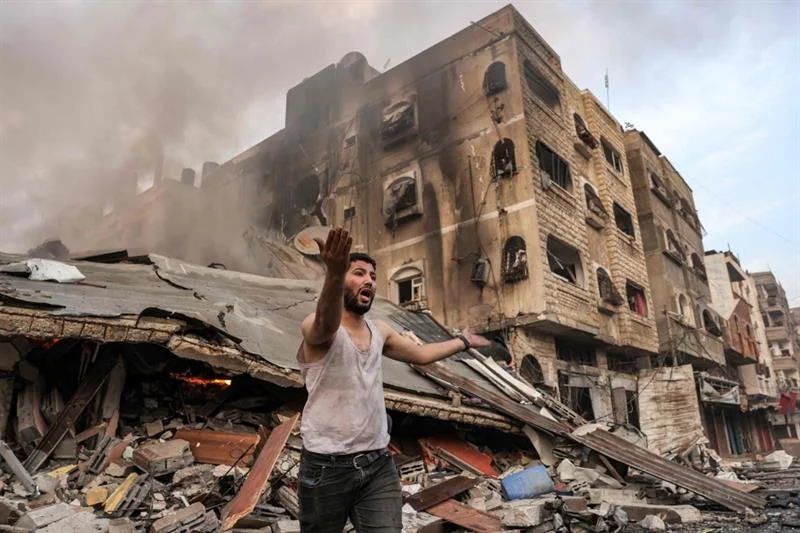The Gaza conflict has taken a devastating turn, with Israeli artillery continuing its relentless barrage of munitions every 30 seconds. As the conflict rages on, the collective death toll on both sides has now surpassed a staggering 3,000, further exacerbating the already severe humanitarian crisis in the region.
Since the outset of strikes against Hamas targets on Saturday, an astounding 6,000 munitions, containing an astonishing 4,000 tonnes of explosives, have been unleashed upon Gaza. To accomplish this, Israeli troops have strategically positioned 150 mm artillery guns just meters apart in fields along the border near the towns of Netivot and Sderot. These very towns were recently overrun by Hamas in a bold weekend offensive.
Netivot and Sderot, located on the Gaza border, have been no strangers to rocket attacks originating from the densely populated enclave. To safeguard the area, roadblocks have been established to prevent Palestinian fighters from infiltrating southern Israel, while Apache helicopter gunships patrol the skies, maintaining a vigilant watch.
In a parallel and concerning development, reports from Syrian state media have indicated Israeli missile strikes on major international airports in Syria, resulting in damage to runways at Damascus and Aleppo airports. Flights have been rerouted to Latakia in north-west Syria. Despite Israel’s silence on these attacks, it has a well-documented history of targeting sites in war-torn Syria that are associated with Iran.
The two affected airports in Syria serve both civilian and military functions, with the latter serving as a crucial transit point for Iranian arms intended for Hezbollah, a formidable militant group in Syria and Lebanon.
Within the Gaza Strip, the situation remains grim as Israel maintains a complete blockade on the besieged territory. The United Nations has decried the relentless strikes as a form of “collective punishment.”
Israel has firmly stated that it will not ease the humanitarian situation in Gaza until all Israeli hostages are released, even as the Red Cross pleads for fuel to be allowed in to prevent hospitals from being overwhelmed.
In a surprising move, the United Kingdom has decided to deploy surveillance aircraft and two Royal Navy ships to the eastern Mediterranean to support Israel in tracking threats to regional stability, including the transfer of weapons to terrorist groups. This military support aims to prevent further escalation, offer deterrence, and support humanitarian efforts.
Meanwhile, US Secretary of State Antony Blinken, during his visit to the Middle East, has reassured Israeli Prime Minister Benjamin Netanyahu of unwavering Washington support. Blinken emphasized, “We’re here, we’re not going anywhere,” as the US aims to prevent the conflict with Palestinian Hamas militants from spreading.
The conflict’s impact extends far and wide, with over 338,000 people forced to flee their homes in the Gaza Strip, according to the United Nations. The situation is dire, with displaced individuals seeking shelter in schools while others rely on the goodwill of relatives, neighbors, and facilities in Gaza City.
The siege and relentless bombardments have severely damaged housing units and civilian infrastructure in Gaza. The sole power plant has shut down, and medical supplies are running critically low in overwhelmed hospitals.
Unrest has also erupted in the occupied West Bank, with protests in solidarity with Gaza resulting in clashes and casualties. The situation remains highly volatile and continues to draw international concern and condemnation.
As the world watches with concern, the conflict in Gaza rages on, and the urgent need for a peaceful resolution and humanitarian assistance remains paramount. The toll on civilians, infrastructure, and the overall stability of the region underscores the gravity of the situation and the necessity for immediate international intervention.




